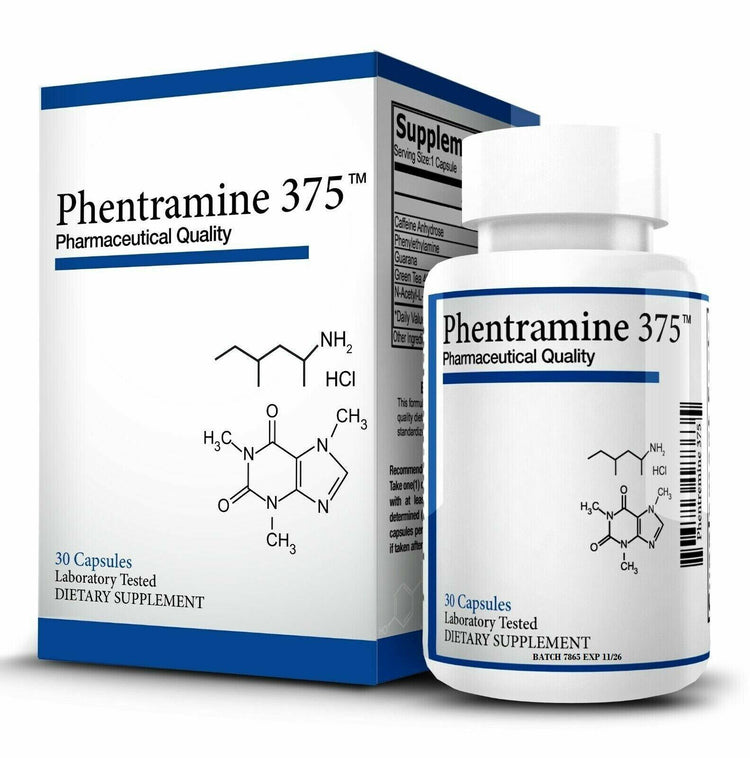GLP-1 Drugs vs Cancer: What the Research Reveals


Related products
GLP-1 Drugs vs Cancer
The relationship between GLP-1 drugs and cancer has been a topic of both intrigue and concern. With countless individuals relying on GLP-1 drugs to manage diabetes and weight loss for weight-related conditions, understanding the potential impact on cancer risk is crucial.
The association between GLP-1 drugs and cancer has been a subject of debate for some time. It's essential to consider various factors, including the type of GLP-1 drug, the duration of use, and individual patient characteristics.
What are GLP-1 Drugs?
GLP-1 drugs, or glucagon-like peptide-1 receptor agonists, are a class of medications primarily used to treat type 2 diabetes mellitus. They mimic the action of the endogenous hormone GLP-1, which is released from the intestine in response to nutrient ingestion. The endogenous hormone plays a vital role in glucose homeostasis by stimulating insulin secretion from pancreatic beta cells, suppressing glucagon release from alpha cells, and slowing gastric emptying.
As a result, GLP-1 drugs help in reducing blood glucose levels. Additionally, they often promote weight loss, which can be beneficial for many patients with type 2 diabetes. Common examples of GLP-1 drugs include liraglutide, exenatide, and dulaglutide. As with all medications, it's important for patients to discuss potential benefits and risks with their healthcare provider.

Are GLP-1 Drugs Linked to Cancer?
Yes, there is a potential link to cancer, however Over the years, studies have attempted to discern whether GLP-1 drugs, often used to lower blood sugar levels in individuals with type 2 diabetes, pose any risk of cancer. It's essential to clarify that this area of research is ongoing and dynamic, with new insights emerging regularly.
Initial apprehensions regarding the GLP-1 drugs-cancer link were sparked by animal studies. Some findings suggested an elevated risk of specific cancers, notably pancreatic cancer. "While animal models provide essential insights, they don't always directly translate to human health outcomes," notes Dr Rajesh Gupta, an oncologist at Imperial College London.
Various epidemiological studies have sought to understand this connection better. For instance, a comprehensive review in the British Journal of Clinical Pharmacology assessed several clinical trials and observational studies. The consensus was that while some data suggests a potential increased risk, other studies found no significant connection or even potential protective effects.
What are the types of GLP-1 drugs and their role?
GLP-1 drugs come in various forms, including exenatide, liraglutide, and dulaglutide. While these medications share a common goal of regulating blood sugar, they can have different effects on the body, making it essential to distinguish between them.
Wegovy (Semaglutide)
Wegovy is a GLP-1 (Glucagon-like peptide-1) receptor agonist drug used for treating obesity in adults with a BMI of 30 or above, or 27 and above if they have related health issues like type 2 diabetes, hypertension, or elevated cholesterol. It operates by imitating the GLP-1 hormone, which controls appetite. Buy Wegovy Online
Trulicity (Dulaglutide)
Trulicity is a medication used to manage type 2 diabetes and falls under the GLP-1 receptor agonist category. It's delivered as a weekly subcutaneous shot, offering convenience for its users.
Bydureon BCise (Exenatide extended-release)
Bydureon BCise, intended for type 2 diabetes treatment, is a GLP-1 receptor agonist. Bydureon BCise is a prolonged-release injectable given once a week.
Byetta (Exenatide)
Byetta is a GLP-1 receptor agonist primarily utilized for type 2 diabetes treatment. It's given as a subcutaneous shot, usually before eating.
Victoza and Saxenda (Liraglutide)
Both Victoza and Saxenda are part of the GLP-1 receptor agonist family. While Victoza is mostly prescribed for type 2 diabetes, Saxenda is mainly for weight control in adults who are overweight or obese.
Adlyxin (Lixisenatide)
Adlyxin is a GLP-1 receptor agonist medication meant for type 2 diabetes management.

Whats types of cancers are linked to GLP-1 drugs?
Based on current scientific understanding and research, GLP-1 (Glucagon-Like Peptide-1) agonists have been linked to various types of cancer such as pancreatic and thyroid. The main concerns that emerged from preclinical studies, especially in rodents, centred around:
Pancreatic Cancer
Pancreatic cancer was a primary concern due to the pancreatic origin of GLP-1. Some animal studies had shown an increased risk, prompting researchers to delve deeper. "While the initial data was troubling, subsequent larger-scale human trials haven't consistently corroborated these findings. That said, monitoring is crucial," comments Dr Lucy Walters, a pancreatic specialist from King's College London, comments.
The potential link between GLP-1 drugs and pancreatic cancer remains inconclusive. Some studies hint at an elevated risk, especially with long-term use, while others show no increased risk.
Thyroid Tumours
Another concern has been the potential association between GLP-1 drugs and thyroid tumours. This was primarily based on rodent studies where long-term use resulted in an increased occurrence of thyroid C-cell tumours.
However, "rodents have a different thyroid physiology than humans, which makes extrapolating these results problematic. Human studies have not consistently shown the same effects," advises Dr Sameer Patel, an endocrinologist from Oxford University. The exact nature of the relationship between GLP-1 drugs and thyroid tumours in humans remains a topic of ongoing research, but initial alarmist reactions seem to be more tempered now with accumulated evidence.
Can GLP-1 drugs help protect against cancer?
Contrary to the concerns, some studies suggest that GLP-1 drugs might possess anti-cancer properties. The potential protective effect is primarily attributed to their influence on cell growth and metabolism. A study published in the Journal of Endocrinological Investigation suggested that GLP-1 drugs could inhibit the growth of certain cancer cells.
"The fascinating aspect of GLP-1 drugs is their dichotomous nature. On one hand, we're investigating potential risks, but on the other, there's emerging evidence of potential cancer-suppressive properties," as explained by Professor Angela Richardson from the University of Edinburgh.
People Also Ask
Who should avoid GLP-1?
GLP-1 (Glucagon-Like Peptide-1) agonists are medications primarily used to treat type 2 diabetes. They work by mimicking the action of the body's natural GLP-1 hormone, which increases insulin secretion and decreases glucagon secretion, helping to regulate blood sugar levels. However, like all medications, GLP-1 agonists are not suitable for everyone. Here are some groups of people or conditions for whom GLP-1 agonists might be contraindicated or used with caution:
People with a history of Medullary Thyroid Carcinoma (MTC): Preclinical rodent studies have shown an association between GLP-1 agonists and an increased risk of thyroid C-cell tumours. While this hasn't been confirmed in humans, caution is advised for those with a personal or family history of MTC.
Individuals with Multiple Endocrine Neoplasia Syndrome Type 2 (MEN2): This is a rare hereditary condition that raises the risk of MTC, so GLP-1 agonists might not be recommended.
Patients with a history of pancreatitis: While the data is not conclusive, there have been concerns about the potential association between GLP-1 agonists and pancreatitis. It's advisable for patients with a history of this condition to discuss the risks and benefits of GLP-1 agonists with their healthcare provider.
People with severe gastrointestinal disease: GLP-1 agonists can cause gastrointestinal side effects like nausea, vomiting, and diarrhoea. In individuals with pre-existing severe gastrointestinal conditions, these side effects might be exacerbated.
Patients with severe renal impairment: While some GLP-1 agonists can be used in mild to moderate kidney impairment, they might not be suitable for those with severe renal dysfunction or end-stage renal disease.
Pregnant or breastfeeding women: The safety of GLP-1 agonists during pregnancy and lactation has not been sufficiently established. It's important for women who are pregnant, planning to become pregnant, or breastfeeding to consult with their doctor about the best diabetes treatment options.
Individuals with hypersensitivity: If someone has shown allergic reactions to the active or any of the inactive ingredients in a specific GLP-1 agonist formulation, they should avoid that particular drug.
Conclusion
The narrative surrounding GLP-1 drugs and cancer is complex. The relationship between the two is multi-faceted, with research revealing both potential risks and benefits. As with all medical treatments, a nuanced approach is necessary. "It's crucial not to oversimplify. We must continue rigorous research, always weighing the undeniable benefits of GLP-1 drugs against potential risks," Dr Kevin Moore from the University of Manchester.
As more studies are conducted and longer-term data becomes available, the medical community will be better positioned to offer guidance on GLP-1 drugs and their implications in the realm of cancer.











 Rated Excellent by 26,523+ Reviews
Rated Excellent by 26,523+ Reviews